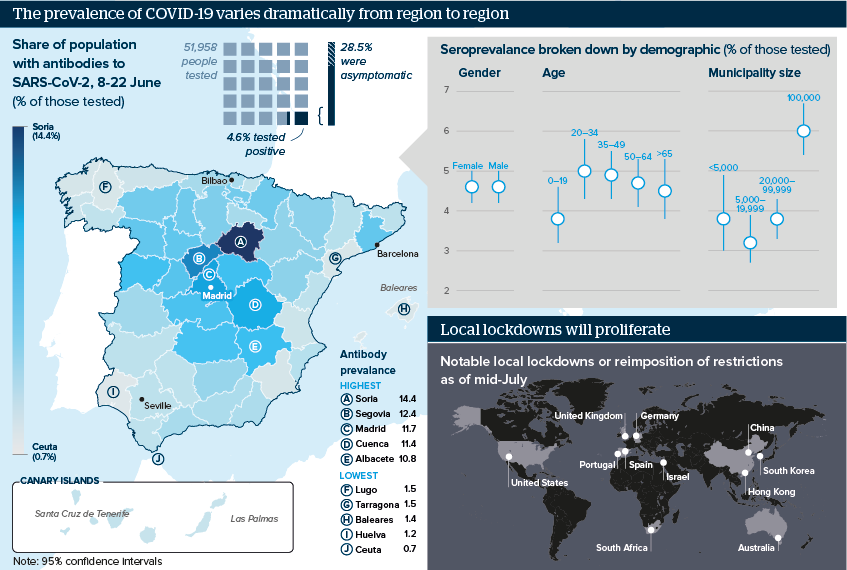Local lockdowns will be key in COVID-19 management
Europe’s largest COVID-19 study shows that only 5% of Spaniards have had COVID-19; one-third of them were asymptomatic
Source: Instituto de Salud Carlos III; ENE-COVID National Seroprevalence Study, July 6
Outlook
Spain’s major public health research institute, Instituto de Salud Carlos III, on July 6 unveiled the largest serological study conducted to date in Europe, including some 61,000 individuals. The study found that only 5% of those sampled had had COVID-19. The findings end debates over allowing the virus to build natural ‘herd immunity’ in the community; given that 95% of the population is still susceptible to the virus, the death toll would be too high -- more than 28,400 people died in Spain since the start of the epidemic.
One-third of the participants who tested positive for the virus were asymptomatic; that would be an estimated 1 million Spaniards. This makes controlling the epidemic difficult, so a combination of social distancing and other non-pharmaceutical interventions will be needed until a vaccine becomes available. Lockdowns of whole cities or regions will be a key strategy, probably driven by outbreaks in cities; rural areas will have lower incidence.
Impacts
- Evidence points to immunity to COVID-19 waning after three months, which means recurrent outbreaks are likely.
- Transmission is likely to increase over the winter, as colder temperatures bring people together indoors.
- Winter months could see more frequent lockdowns and stricter measures.
See also
- COVID-19 cases are likely to surge in winter - Sep 8, 2020
- The coming months will be the pandemic's riskiest - Jul 30, 2020
- COVID-19 cases are expected to rise over winter - Jul 15, 2020
- Booster vaccines would offset short COVID-19 immunity - Jul 14, 2020
- COVID-19 immunity will determine the pandemic's future - Jun 26, 2020
- First COVID-19 vaccine may not end all distancing - May 12, 2020
- More graphic analysis
